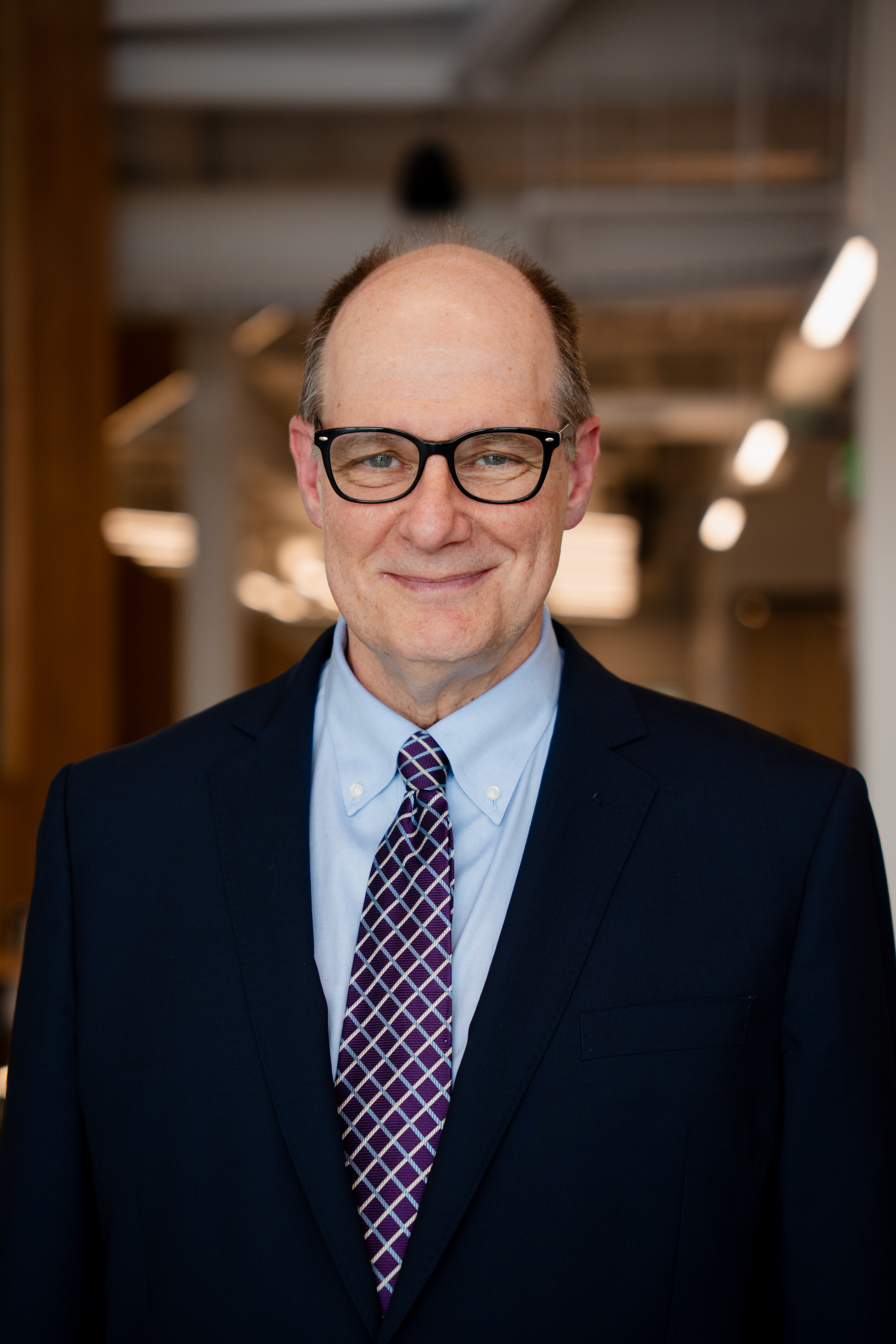
Witte Jr. named Distinguished Alumnus, capping recent accolades
John Witte Jr. has recently received the Distinguished Alumnus Award from his alma mater Calvin University, among numerous other accolades.

John Witte Jr. has recently received the Distinguished Alumnus Award from his alma mater Calvin University, among numerous other accolades.
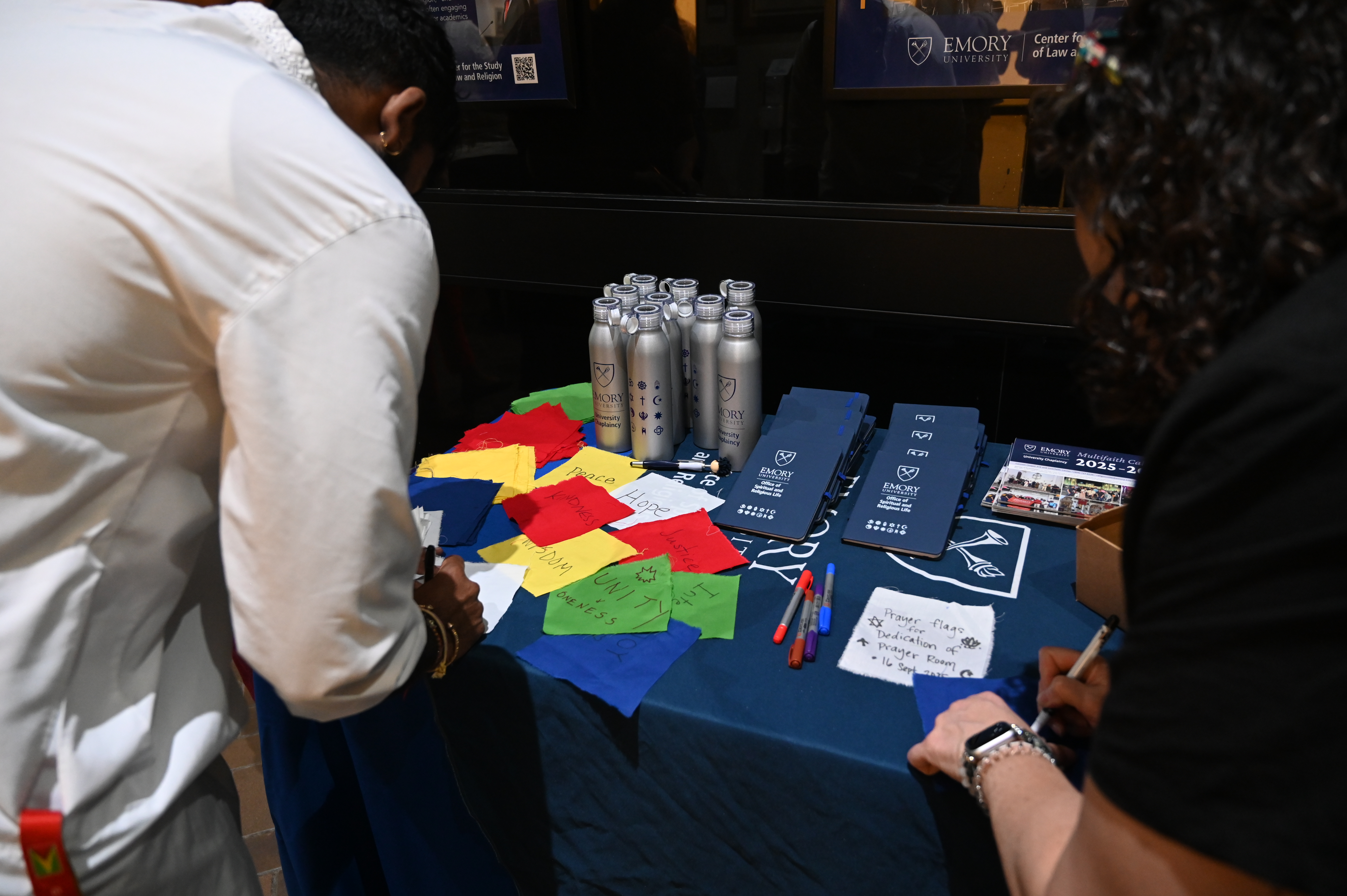
There is a space at Emory Law newly dedicated to meditation and reflection for all faiths.
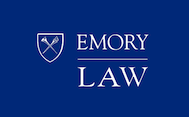

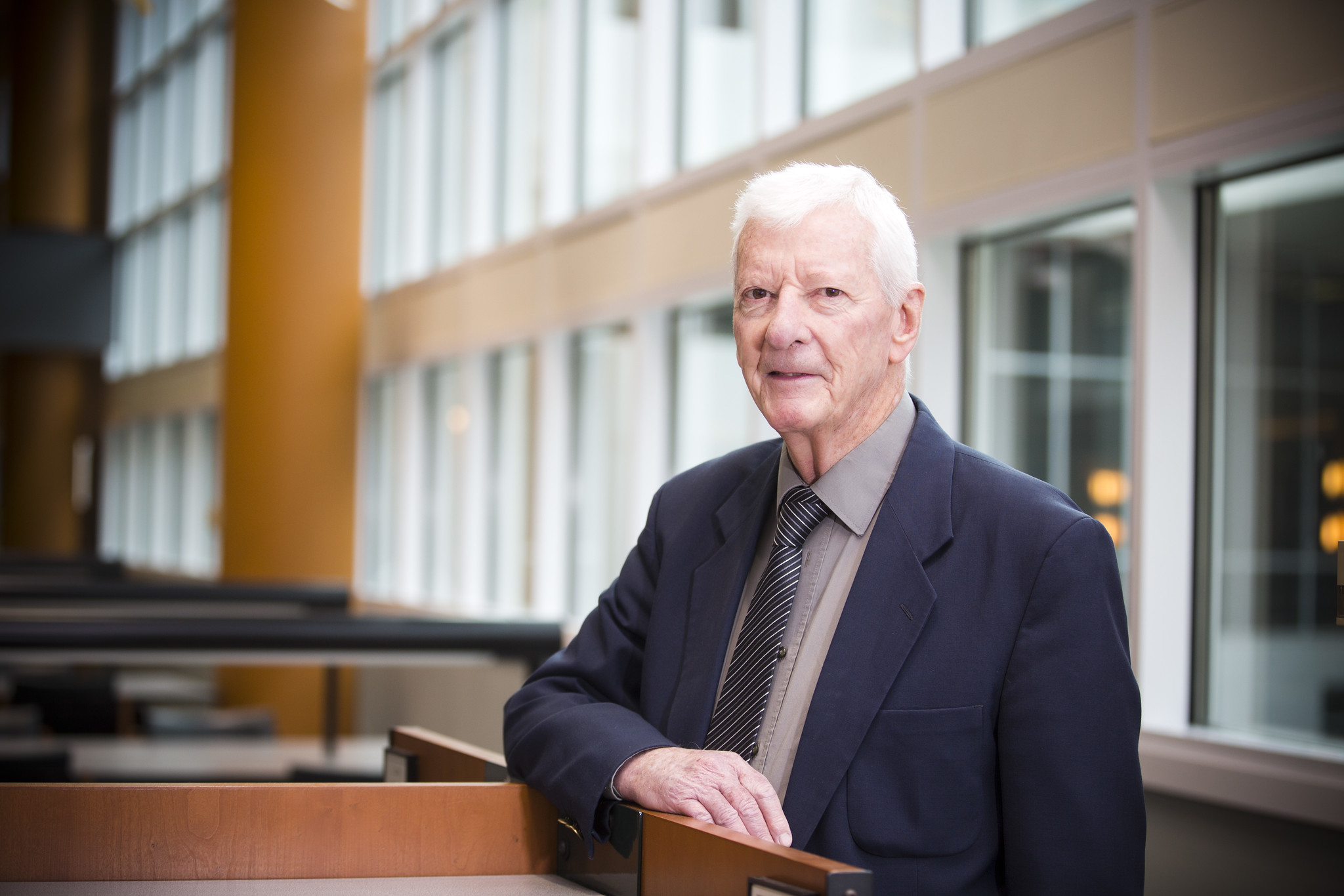
Emory University School of Law and the Center for the Study of Law and Religion have announced the establishment of the Johan van der Vyver Professorship in Law and Religion.




John Witte has been elected to the American Academy of Arts and Sciences (AAAS)—the third Emory Law scholar to receive this honor.

Brill Publishers has released a book of essays in honor of John Witte, Robert W. Woodruff Professor of Law, McDonald Distinguished Professor of Religion, and faculty director of the Center for the Study of Law and Religion at Emory University.













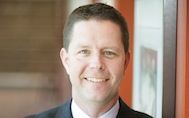


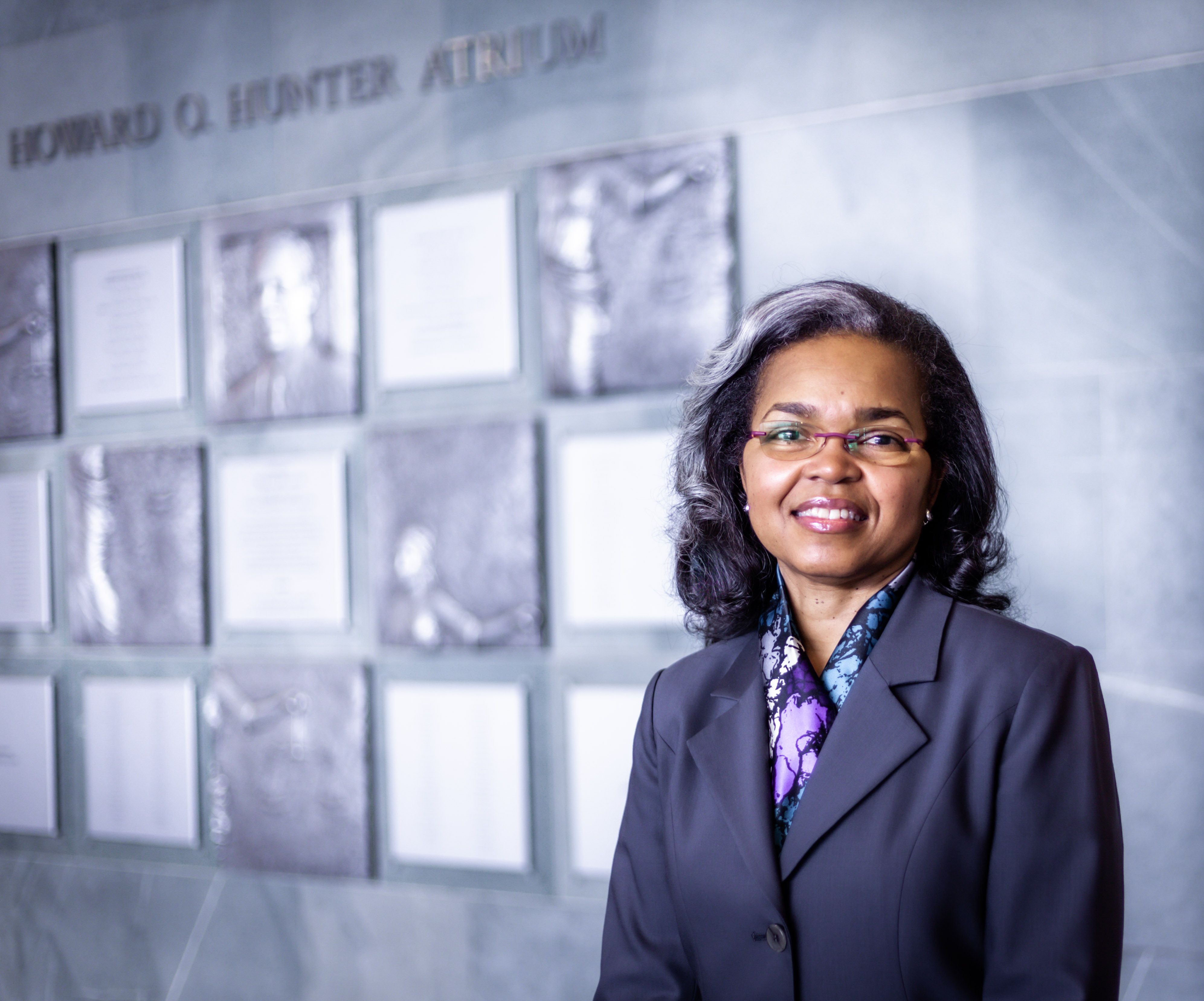
The Center for the Study of Law and Religion (CSLR) is pleased to announce the appointment of Terri Montague as McDonald Distinguished Senior Fellow at CSLR, and Senior Lecturer at Emory Law School.


Three different times during the pandemic the United States Supreme Court stayed enforcement of limits on worship services. The last one was Tandon v. Newson, when the United States Supreme Court stayed the enforcement of yet another of California’s limits on worship services during the pandemic. In many ways, the Supreme Court’s decision was not surprising as it had done the same in a New York case nearly five months earlier and a different California case only two months prior.

Three Emory Law faculty--Mary L. Dudziak, Michael J. Perry and Alexander Volokh--joined more than 150 law professors who signed a letter published by the New York Times, which says the First Amendment is no shield for former President Donald Trump at his impeachment trial.

"In this untraditional era, Mr. Trump has ignored decades of ethical norms. But is it a good idea for Justice Ginsburg to follow his lead?" Professor Michael Broyde writes for the Wall Street Journal on why Ruth Bader Ginsburg should recuse herself. "Unlike Sotomayor, she has shown bias against Trump by publicly characterizing him as unfit for office," the opinion piece says.

Spanish businessman and philanthropist Gonzalo Rodriguez-Fraile has pledged a substantial gift that will support the work of Emory’s Spruill Family Professor of Law and Religion Rafael Domingo.

Digital platform engages video and social media to encourage scholarly discussion
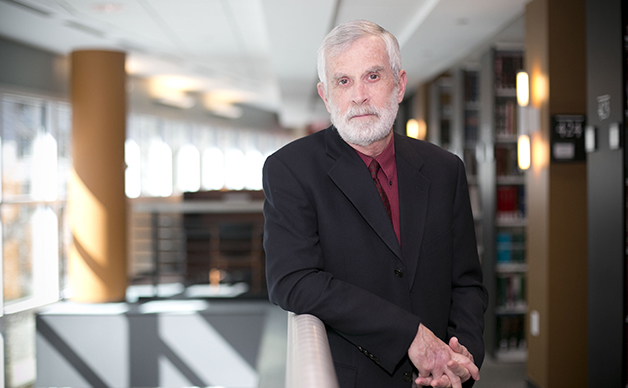
The government action at issue in American Legion v. American Humanist Association concerned a 94-year-old, 32-foot-high "Peace Cross" on a pedestal atop a busy intersection near Bladensburg, Maryland. The Peace Cross was erected by private groups in 1925 as a memorial to the 49 citizens of Prince George's County, Maryland, who died in World War I. The State of Maryland took ownership of the site in 1961 and has maintained it with public funds ever since.
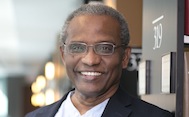
Emory Law Professor and CSLR Senior Fellow Abdullahi Ahmed An-Na'im, author of "Islam and the Secular State," is interviewed by UNESCO on how concept, content and context affect meaningful changes in human rights, and also, his "The Future of Sharia," project.
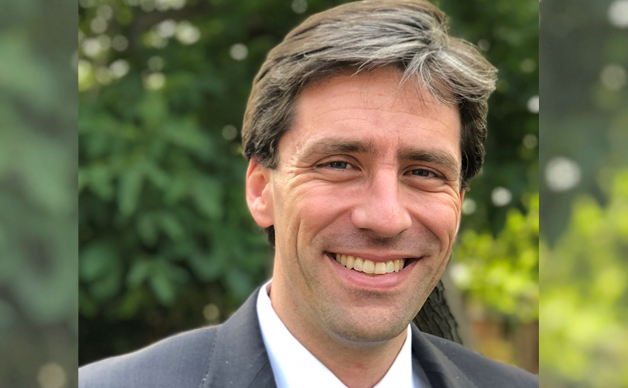
McDonald Distinguished Fellow Mark Storslee was recently awarded the 2020 Harold Berman Award for Excellence in Scholarship by the Law and Religion Section of the Association of American Law Schools.

John Witte Jr. has been invited as a Gifford Lecturer for 2020, a celebratory year that marks the 200th anniversary of the birth of Scottish jurist Adam Lord Gifford, founder of the esteemed lecture series begun in 1888.

Emory Law Senior Lecturer Mark Goldfeder was quoted by the Christian Science Monitor on what the U.S. Supreme Court's 7-2 decision in Masterpiece Cakeshop meant. "This is a balancing test," Goldfeder said. Equality for the LGBTQ community and the free exercise of religion "are all valid rights and they all deserve to be listened to, and that's why it was so hurtful what the Colorado Commission did, which was almost to pretend there wasn't another side to this question."

"For people on both sides of the Masterpiece Cakeshop issue, it was a disappointing day," Senior Lecturer Mark Goldfeder writes for CNN. "They hoped that the Supreme Court on Monday would once and for all strike a new balance between religious freedom and discrimination." While the opinion wasn't what everyone wanted, "the notion that not only is religion to be protected, but that other viewpoints are to be respected, is both critical and noteworthy."

That an Arizona woman was killed by a driverless car is a tragedy, Emory Law Senior Lecturer Mark Goldfeder writes in the AJC. But we shouldn't overlook that driverless cars will also save lives, he says. "We currently have a system that allows human drivers, with all of their ticks, quirks, bad habits and malfunctions, to operate massive heavy machinery at incredibly high speeds, a system that results in approximately 37,500 deaths a year in the U.S. In fact, the U.S. Transportation Department says that about 94 percent of fatal accidents are caused by human error."

After thirty-seven years, Frank S. Alexander, Sam Nunn Professor of Law and founding director of the Center for the Study of Law and Religion, will conclude his teaching career at Emory Law at the end of this academic year.
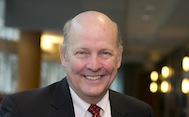
As sea level rise accelerates, potentially leaving coastal homes abandoned from Texas to New England, a legal debate over submerged land asks whether governments have the authority to tear them down. Emory Law Professor Frank Alexander was quoted by Bloomberg on the subject. "Who's got responsibility for removing the damaged structures?" he asked. Not finding an answer could mean a "coastline dotted with these structures that are half sticking out of the ground."


"The problem of sexual abuse against children in our community is a stubborn one," Emory Law Professor Michael Broyde writes in a column for The New York Jewish Week. "The truth regarding this is very complex--addressing it requires nuance and complexity, and not merely good wishes and love. No one wants abuse to occur, and we all want to preserve what is valuable in the Jewish educational system." Broyde offers six policy points to move forward when abuse is investigated.

Artificial intelligence is is already being adopted for military use, raising questions as to what role the technology will play in the end-of-days, says a Breaking Israel News story. Although AI poses many ethical and theological questions, Emory Law Senior Lecturer Mark Goldfeder says the development of technology was in fact intended by God to be part of man's role in being a partner with God in Creation.

Artificial intelligence is progressing swiftly, and "scholars already imagine a time when robots and intelligent machines may deserve--and be accorded--some sort of rights," says a recent article in NBC's MACH. Senior Lecturer Mark Goldfeder is quoted: "I have a responsibility to treat all that seem human as humans, and it is better to err on the side of caution from an ethical perspective," he said.

In a Christian Science Monitor story on church and state, Emory Law Senior Lecturer Mark Goldfeder notes a long-running debate over religious-secular school choice programs may already be resolved. Seventeen states have instituted versions of "scholarship tax credit programs," which allow individuals and corporations to set aside a portion of the state taxes they owe and donate them to nonprofit organizations that issue scholarships to grade school and high school students. "It's interesting in the overall scheme of things, because what these programs do, they take religion out of it," he said, noting such programs have already passed constitutional muster.

Emory Law Professor Michael Perry is among the 44 constitutional law scholars represented in an amicus brief filed at the Supreme Court this week, which argues the Trump administration's "travel ban" is unconstitutional. The brief is featured at the TakeCare blog, which includes a link to the brief in the first paragraph.
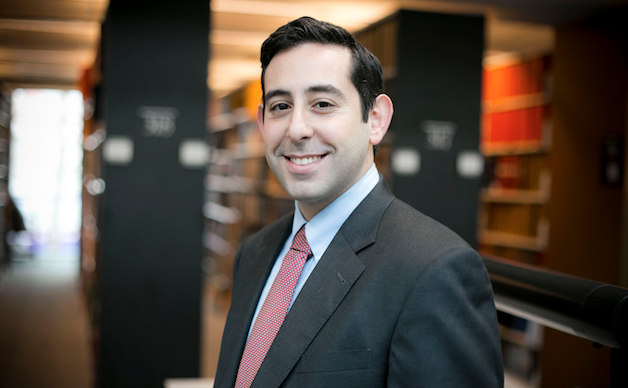
What makes the decision in Trinity Lutheran so interesting is that while the facts were really clear, the justices seemed generally unable to agree on what exactly the case was about or how to frame it.

Last year, the Palestinians spent $300 million, or nearly 7 percent of its total budget, on paying terrorists and their surviving family members, Fox News reports. "It's unbelievable," Emory Law Senior Lecturer Mark Goldfeder said of the payments. "[The PA] literally publish the fact, in their laws, that they are incentivizing terrorism. Then they publish a budget which says how much they are paid to incentivize terrorism. This is an open and shut case, you can't ask for better evidence than a literal physical confession."

President Trump's executive order to loosen a federal law governing religious leaders endorsing political candidates could cut a number of ways, says Emory Law Senior Lecturer Mark Goldfeder. The Johnson Amendment is vague and problematic because it limits free speech, but enforcement is rare. "Pastors are breaking it on a weekly basis," he tells the AJC. But a true repeal could cause rifts in congregations. "People have relied on the Johnson Amendment to keep their churches together," he said. If pastors are pressured to endorse candidates from the pulpit, portions of their congregations will be alienated as a result.

In a recent story on Americans embracing conscientious objector status in their private and professional lives, Emory Law Senior Lecturer Mark Goldfeder was quoted on religious liberty. "I believe as an American that, in general, it is a good thing for society to shape laws in ways that allow people to live their lives in ways consistent with their sincerely held religious obligations," he said. "It's in our First Amendment for a reason: It is extraordinarily important as part of the American constitutional experiment that separated us from previous societies, and made us a better nation. At the end of the day, that's a cornerstone, the bedrock of our society."

Was President Donald Trump morally justified in launching 59 Tomahawk missiles at a Syrian air base in response to Syrian President Bashar Al-Assad's chemical attack on his own citizens? CNN asked experts from five faiths. Emory Law Professor and Rabbi Michael Broyde responded: "As I understand the facts, Trump struck a military target directly connected to the gas attack. To the extent that there is ever a situation in which military force is proper and appropriate, from a Jewish legal and ethical standpoint, it is to defend civilians against just such an attack. Attacking the airfield is the most ethically defensible thing to do."


In 2016, the American Center for Law and Justice published a seven-point plan to stop the ISIS genocide against Christians, which can be applied in any instance where the U.S. recognizes that genocide is taking place, Senior Lecturer Mark Goldfeder writes with co-author Ján Figel. "These practical steps for governmental intervention include calling upon the various U.N. organs to formally recognize the genocides taking place, to prosecute war criminals and to establish in-region safe zones for genocide victims, which would also eliminate the need for mass refugee relocation," the op-ed reads.

Senior Lecturer Mark Goldfeder was quoted in the New York Times on the Justice Department's decision to file a lawsuit against a New Jersey township. It alleges discrimination against Muslim residents who want to build a mosque there. The Religious Land Use and Institutionalized Persons Act was intended to protect all religious faiths, but 11 of the last 13 cases brought by the Justice Department have involved Muslims. "The law, by its very nature, deals with particularly vulnerable populations," Goldfeder said. "It's so easy for towns to hide discrimination behind layers of land-use procedure."
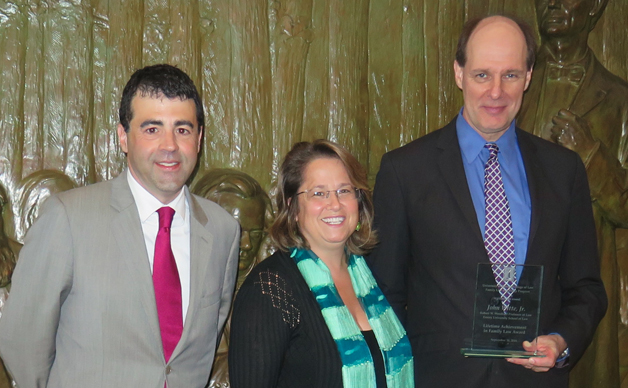
John Witte, Jr., Robert W. Woodruff Professor of Law, McDonald Distinguished Professor, and Director of the Center for the Study of Law and Religion, has received the Harry Krause Lifetime Achievement Award in Family Law from the University of Illinois College of Law.
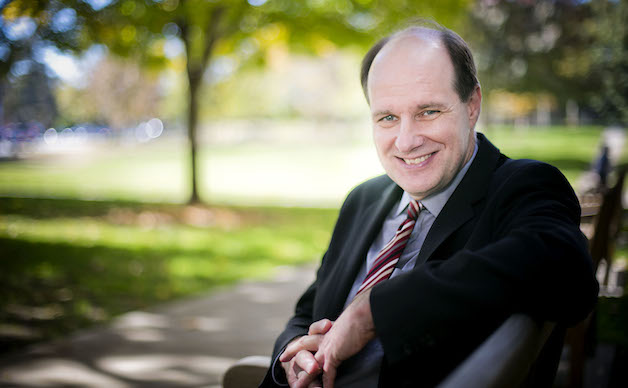
The McDonald Agape Foundation has committed $1 million to extend CSLR Director John Witte, Jr.'s McDonald Distinguished Professor of Law and Religion through 2028. The gift will ensure the continuation of Witte's internationally renowned scholarship in law and Christianity, and a continuing a 12-year relationship between Witte and the Foundation.

Donald Trump again called to ban Muslims from entering the United States after a mass shooting at an Orlando nightclub, Politifact reports. He said Pew Research found 99 percent of those in Afghanistan support "oppressive Sharia law." Different countries interpret and apply Sharia law differently, and as with other religions, interpretations change over time, said Charles Howard Candler Professor of Law Abdullahi Ahmed An-Nai'im. "Sharia is understood to be the religious obligations of Muslims, but it is a normative system in which Muslims have profound differences and always have," he said.

John Witte, Jr., director of the Center for the Study of Law and Religion, will receive the James W.C. Pennington Award from the Heidelberg Center for American Studies and the University of Heidelberg Department of Theology.

As Republican lawmakers continue to pass bills aimed at protecting the religious freedom of those opposed to same-sex marriage, a new separatist social vision is evolving, Harry Bruinius writes in the Christian Science Monitor. Those with "sincerely held religious beliefs," including businesses that provide public services, can separate themselves, or opt out of social obligations surrounding same-sex marriage. "People are getting further and further entrenched in their positions and digging lines in the sand in a way that isn't helpful to anyone," says Emory Law Senior Lecturer Mark Goldfeder. "And it's pretty terrible for our national culture."

Emory Law Senior Lecturer Mark Goldfeder commented on this week's news concerning Zubik v. Burwell. "The court is asking for the parties to help craft a process by which the affected employees can get their contraception easily covered, in a way that does not violate their employer's religious beliefs," he said. "The way this case has often been portrayed in the media, it has been about a clash between religious liberty and reproductive rights," he adds. "As became clear in the arguments today, that is a false dichotomy, and a false narrative."

Emory Law Senior Lecturer Mark Goldfeder says he doubts the U.S. Supreme Court would accept an appeal involving a Muslim inmate in Michigan who sued prison officials for violating his First Amendment free exercise rights. He allegedly received only 1,300 calories per day during Ramadan. "I would be surprised if the Court took it because it is less about qualified immunity and more about defining the underlying right," Goldfeder says.

President Barack Obama has several options when nominating the next U.S. Supreme Court justice, Emory Law Professor Michael Broyde writes for CNN. But 7th U.S. Circuit Judge Richard Posner is "the Michael Jordan of law," Broyde says. "The President should appoint a leading legal mind at the end of his career. Posner is a leading intellectual light of the past half-century in law."

Yale Law Professor Stephen Carter chose John Witte Jr.'s book, The Western Case for Monogamy Over Polygamy, as one of seven of the best histories of the year. "[It's] an important book for those who want to support same-sex marriage but worry about the slippery slope," Carter writes in his column for Bloomberg View. Witte is director of the Center for the Study of Law and Religion.

The vast majority of Muslims feel moral revulsion and outrage about the violence perpetrated by ISIS, Charles Howard Candler Professor of Law Abdullahi Ahmed An-Na'im writes for The Conversation. "ISIS' claim of Islamic legitimacy can be countered only by a viable alternative interpretation of Islamic law."

As Kansas City copes with thousands of abandoned, eyesore properties in the aftermath of the Great Recession, it's looking beyond trying to fill them with new houses and residents, according to a story in the Kansas City Star. The city is following what has worked in some other cities, says Sam Nunn Professor of Law Frank Alexander, an expert on land banks. He notes the adopt-a-lot program is one of the fastest ways to get vacant parcels to residents who care about them and will do the maintenance.
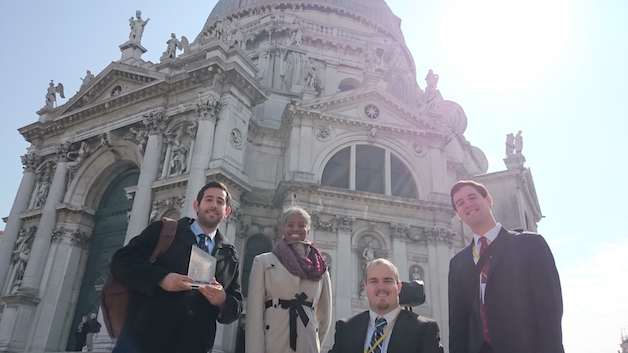
The Center for the Study of Law and Religion at Emory University has received a $1 million gift to expand training and scholarship in religious freedom

The U.S. Supreme Court's decision to uphold the use of disparate impact claims was a huge victory for civil rights, Next City's Cassie Owens writes. "If the Supreme Court elects to reject the possibility of discriminatory impact, it's going to basically be undoing the last 45 years of Fair Housing Act enforcement,' said Emory Law Professor Frank Alexander said, prior to the court's decision. "That result would make it incredibly difficult for the Fair Housing Act to be enforced except when the defendant actually says, 'I refuse to rent to you because of your race.'"

Charles Howard Candler Professor of Law Abdullahi An-Na'im is trying to prompt a global discussion between Muslims and others about Islamic law--also known as Shariah law--and why Shariah is viewed as such a threat in western cultures. He recently launched his Future of Shari'a blog, https://scholarblogs.emory.edu/aannaim/. "By its nature Shariah, which is the term I prefer over Islamic law, because as soon as you say Islamic law, which is the English translation, you are implying that it is a law to be imposed by the state, which is contradictory to its nature."

John Witte, Jr. will spend the fall 2015 semester at the Library of Congress to research his new book series.

Religion and politics aren't generally considered topics of friendly conversation, but they're exactly what an Emory University law professor wants to start a global discussion around. Charles Howard Candler Professor of Law Abdullahi An-Na'im's blog is titled "Future of Sharia."

What is the greatest threat to society and religion? Writer Nicholas Chen cites Professor Abdullahi An'Nai'm's book, Islam and the Secular State: Negotiating the Future of Shari'a, in asserting that separation of state and religion "not only preserves the wellbeing of the society, but also the integrity of the religion."
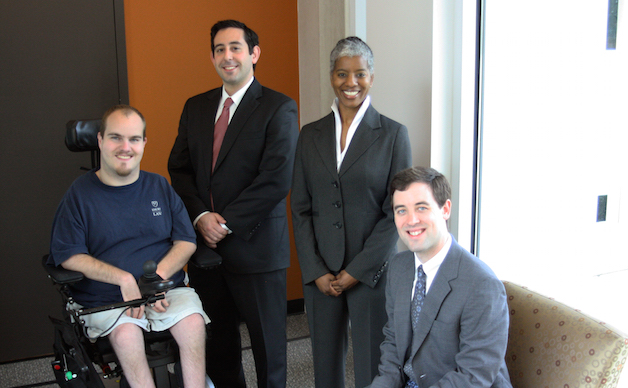
Emory University School of Law won an international law and religion moot court competition in Venice, Italy, prevailing over 14 teams from four continents.

Charles Howard Candler Professor of Law Abdullahi Ahmed An-Na'im was a guest panelist for a recent talk sponsored by the Georgia Commission on the Holocaust, on past and current human rights abuses. Other panelists included British Consul General Jeremy Pilmore-Bedford, publisher M. Alexis Scott, and Holocaust survivor Norbert Friedman. The event was held at the Center for Civil and Human Rights.

Indiana became the 20th state to pass its version of a religious freedom restoration act last week, amid a national debate over the legal limits of religious conservatives' and LGBT citizens' visions for the nation's common life together. "At some point we come to the idea that we decide as a society that there's a compelling government interest that we don't discriminate anymore," says Mark Goldfeder, senior fellow at Emory Law's Center for the Study of Law and Religion.

One year after a massive landslide killed 43 people, Washington Gov. Jay Inslee is pushing to fund new mapping of geological hazards across the state and make that data available to the public. But in a recent interview he said the state won't tell property owners where they can or can't live, citing the difficulty of predicting landslides, the Wall Street Journal says. "Local governments are reluctant to say to private property owners, 'You can't do something,' " said Emory Law Professor Frank Alexander, who has studied the issue. "The American spirit hates to be told they can't do something." (subscription required)

New Orleans is selling almost 1,800 properties on the Web to fatten its tax coffers and build on the momentum it's enjoying in the local real estate market, Bloomberg Business reports. "The weakness of this open-auction approach is there is no assurance that a purchaser who completes the acquisition will use it in a manner that's in the best interests of the city," said Emory Law Professor Frank Alexander.

The Center for the Study of Law and Religion at Emory University is launching a new book series on law and Christianity.

John Witte Jr. has been named Robert W. Woodruff Professor of Law at Emory University School of Law.

It's probably not a book that a young man could write, and that is to its credit. The volume is boldly titled What Is an American Muslim? Embracing Faith and Citizenship, and the "old soul" behind it is Abdullahi Ahmed An-Na'im, Charles Howard Candler Professor of Law, associate professor in Emory College, and senior fellow of the Center for the Study of Law and Religion.

West Virginia is among a small group of states stepping up to take charge in the revitalization of its communities through reclaiming blighted, abandoned and dilapidated properties, a national expert said Wednesday. Emory Law Professor Frank Alexander, co-founder of the Center for Community Progress, spoke with community and business leaders from across West Virginia during the West Virginia BAD Buildings Summit on Wednesday at the Visual Arts Center in downtown Huntington. BAD stands for blighted, abandoned and dilapidated.

Emory Law Professors Abdullahi Ahmed An-Na'im and William Buzbee will discuss their recently published books at this year's AJC Decatur Book Festival, held Aug. 29-31.

Emory Law Professor Abdullahi Ahmed An-Na'im argues that Islam is protected by the establishment clause like all other religions.

Land banks are public entities created to revive vacant or tax-foreclosed properties. The small city of Newburgh on the Hudson River has been trying to revitalize itself using a land bank.

Since 1993, the Religious Freedom Restoration Act requires that federal laws accommodate individuals' religious beliefs. Hobby Lobby is first to pass the test.

in Hobby Lobby, the justices consider whether a for-profit corporation can refuse to provide certain contraceptive services in health plans offered to employees

For the first time, a computer program passed the Turing Test for artificial intelligence.

Emory Law professor An-Na'im publishes book, What Is an American Muslim?

An-Na'im argues that American Muslims should engage in the civil and political life of the country as citizens informed by their faith, rather than as a community separated by religion.

Several world-renowned scholars on law and religion will speak on aspects of "Christianity and Human Rights" at Emory Law.

Duffy Realty of Atlanta, one of a growing number of real estate agencies tries new pricing strategies, an upfront listing fee of $500 and one third of 1 percent when a house sells. Duffy said the agency's 2013 revenue was $5.3 million.

The Philadelphia Housing Authority confronts blight and abandoned properties

There are approximately 150 land banks across the country, and Frank Alexander has been involved in creating many of them during the past 20 years.

A Washington Post investigation found some investors demanded thousands in fees from homeowners far exceeding the original tax debts and then took the homes when they couldn¿t pay. About 500 properties have been lost since 2005, most in the city¿s poorest neighborhoods.

Emory Law has created a new lecture series thanks to a grant from the McDonald Agape Foundation.

The Journal of Law and Religion, long the flagship publication in the field, will move to the Center for the Study of Law and Religion (CSLR) at Emory University School of Law in August 2013.

A March 5 conference at Emory Law will address what is often the most emotionally fraught and expensive periods of medical care: the end of life.

U.S. Supreme Court justices meet Friday to decide if they will hear any of several cases involving the federal Defense of Marriage Act, which bans federal recognition of same-sex marriages. Michael Perry, an Emory University Woodruff Professor of law, explains what the court's action on this federal law could mean for Georgia.
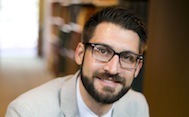
The Center for the Study of Law and Religion at Emory Law named Silas Allard as Associate Director